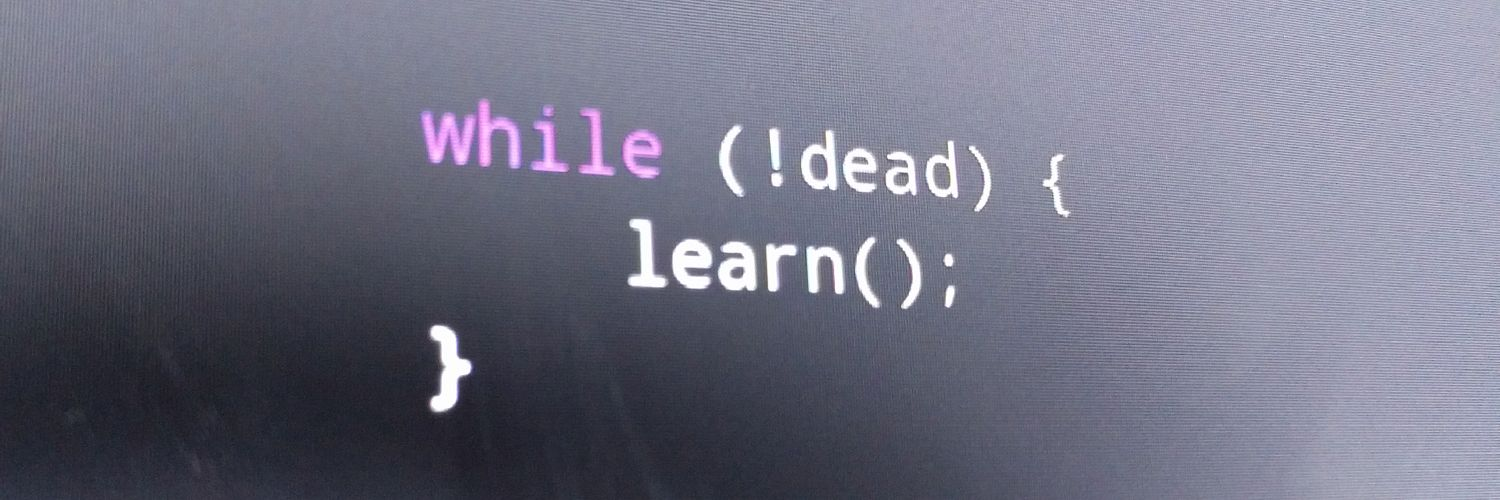You Are not an Island
Yep, today I'm going to bang that drum again. It's been a while. And as I sit on Twitter and daily watch the struggles of those who want to learn more than their education and immediate professional environment can offer, I think we are all in need a reminder.
Programming seems to me to have some strong similarities to medicine and law. In these professions, schooling is understood to be only one part of the necessary education. There is a formal science (or with law, a formal-ish system) underneath, but the work being done on top of that substrate is often creative, intuitive, or even artistic. The skills and experience required to work that magic aren't learned in the classroom or from a book, but rather from a combination of doing the work, and of guidance from those who've walked the path before.
But programming as a pursuit still seems to lack something that law and medicine have: a fairly consistent pattern of education and growth as part of a group. There is essentially no such thing as a physician autodidact. And though it seems possible to be so in the realm of law, it also seems essentially non-existent.
In the realm of programming, autodidacticism is not only common but admired and encouraged. Some glorify it as the only way to produce the best of the best. Depending on who you ask, formal education is viewed alternately as a way to shore up foundations and push beyond personal walls, or as a waste of time and money that closes more mental horizons than it opens.
I find this terribly unfortunate. While it's true that many people feel they "learn best this way", and some of them probably do, there are inarguable benefits to a more planned education, group study, and most of all to true mentorship. Planned education helps to set a smooth ramp of learning. Group study provides an exchange of ideas and a moral support network.
But this kind of learning culture is extremely rare to find in the programming world. There is a spirit of independence and individualism in the programming community at large that I think not only suppresses diversity, but also hinders our growth individual practitioners and holds back the state of the art in the professional community.
Yes, this personal trial by fire highlights strong individuals and purges dross. But is it worth it to lose so many with potential, and so many that merely require a different sort of path? The fewer quality programmers there are, and the more homogenous their background, the more limited the potential of the craft as a whole.
No developer should be an island. The webs of knowledge we see sprouting up with Twitter and developer conferences like CodeMash or That Conference is a great start, but it's not enough. As a community we need to find a better way to bring up our amateurs into professionals. In the meantime, as individuals we can only do ourselves a favor by seeking out mentorship, and finding trusted colleagues andestablishing a shared growth with them.
Programming seems to me to have some strong similarities to medicine and law. In these professions, schooling is understood to be only one part of the necessary education. There is a formal science (or with law, a formal-ish system) underneath, but the work being done on top of that substrate is often creative, intuitive, or even artistic. The skills and experience required to work that magic aren't learned in the classroom or from a book, but rather from a combination of doing the work, and of guidance from those who've walked the path before.
But programming as a pursuit still seems to lack something that law and medicine have: a fairly consistent pattern of education and growth as part of a group. There is essentially no such thing as a physician autodidact. And though it seems possible to be so in the realm of law, it also seems essentially non-existent.
In the realm of programming, autodidacticism is not only common but admired and encouraged. Some glorify it as the only way to produce the best of the best. Depending on who you ask, formal education is viewed alternately as a way to shore up foundations and push beyond personal walls, or as a waste of time and money that closes more mental horizons than it opens.
I find this terribly unfortunate. While it's true that many people feel they "learn best this way", and some of them probably do, there are inarguable benefits to a more planned education, group study, and most of all to true mentorship. Planned education helps to set a smooth ramp of learning. Group study provides an exchange of ideas and a moral support network.
But this kind of learning culture is extremely rare to find in the programming world. There is a spirit of independence and individualism in the programming community at large that I think not only suppresses diversity, but also hinders our growth individual practitioners and holds back the state of the art in the professional community.
Yes, this personal trial by fire highlights strong individuals and purges dross. But is it worth it to lose so many with potential, and so many that merely require a different sort of path? The fewer quality programmers there are, and the more homogenous their background, the more limited the potential of the craft as a whole.
No developer should be an island. The webs of knowledge we see sprouting up with Twitter and developer conferences like CodeMash or That Conference is a great start, but it's not enough. As a community we need to find a better way to bring up our amateurs into professionals. In the meantime, as individuals we can only do ourselves a favor by seeking out mentorship, and finding trusted colleagues andestablishing a shared growth with them.
